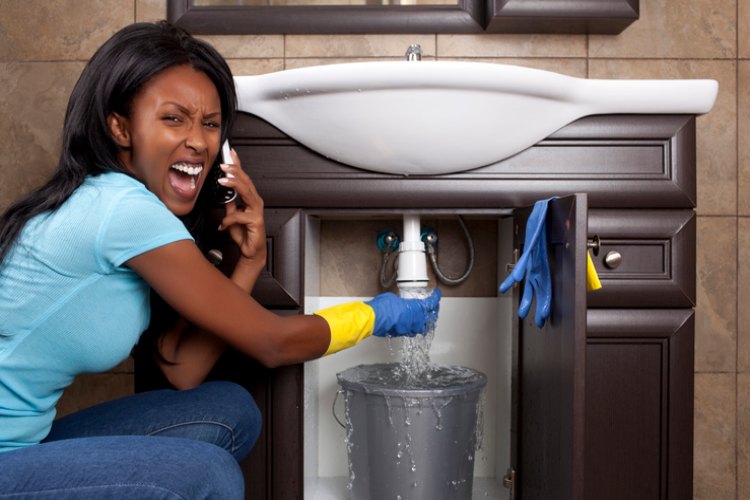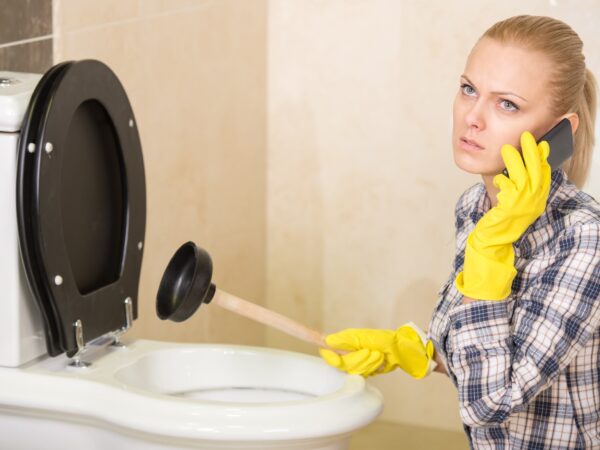Key Plumbing Tips for Urgent Issues: What to Do Until Assistance Arrives
Key Plumbing Tips for Urgent Issues: What to Do Until Assistance Arrives
Blog Article
We have stumbled on this great article on What to Do During a Plumbing Emergency below on the internet and thought it made good sense to relate it with you on my blog.

Pipes emergencies can strike at any time, creating stress and anxiety and possible damage to your home. Whether it's a burst pipeline, a blocked drain, or a dripping tap, knowing just how to handle the situation till a professional plumbing technician arrives can conserve you from further complications. This article gives vital emergency plumbing pointers to assist you mitigate damages and regain control throughout a plumbing dilemma.
Switch off the Supply Of Water
The first step in any type of plumbing emergency situation is to turn off the water supply. For local issues, such as a dripping faucet or commode, shut off the shutoff near the fixture. When it comes to a significant leak or ruptured pipe, find your home's major water shut-off valve and transform it off instantly. Recognizing the location of these valves in advance can save useful time during an emergency situation.
Shut Off Your Hot Water Heater
In certain emergency situations, such as a burst pipeline, it's wise to shut down your water heater. This stops overheating or damages to the unit when water quits moving. Shut off the power supply to the hot water heater (electric or gas) and allow it cool down to prevent potential dangers.
Temporarily Stop a Ruptured Pipe
A ruptured pipeline can result in substantial water damage in minutes. To minimize the problem:
Call a professional plumber instantly to deal with the issue completely.
Have an Emergency Situation Pipes Package
Prepare a basic plumbing emergency situation package to handle minor problems properly. Your kit ought to consist of:
Having these tools available can make a substantial distinction in your capacity to take care of emergencies.
Unclog Drains Securely.
A clogged drain can be an aggravating and untidy problem. Below's just how to tackle it:.
If these approaches do not work, prevent utilizing extreme force, as it may worsen the blockage.
Manage Overflowing Toilets.
An overflowing commode can create prompt turmoil. Right here's what you must do:.
Address Small Leakages with Short-term Fixes.
Small leakages can rapidly become considerable problems if left uncontrolled. Use these short-lived repairs till expert help gets here:.
While these fixes aren't long-term, they can help reduce water loss and damages.
Take Care Of Frozen Pipes Thoroughly.
In cooler climates, icy pipelines are a common emergency situation. If you suspect a frozen pipeline:.
Know When to Call a Specialist.
While quick fixes can help briefly, specific pipes issues need prompt professional attention. Call a plumbing professional if:.
Without delay speaking to a specialist ensures the issue is dealt with appropriately and avoids additional problems.
Protect against Further Damages.
Taking quick action to decrease damage can save you money and time in the long run. Right here's just how:.
Verdict.
Pipes emergencies can be overwhelming, however with the appropriate knowledge and tools, you can handle the scenario effectively until assistance shows up. By switching off the water supply, dealing with little leakages, and making use of short-term solutions, you can decrease damage and keep your home safe. Keep in mind, these ideas are momentary remedies; constantly consult a licensed plumbing to deal with the source of the issue. Prep work and fast reasoning are your ideal allies in any kind of pipes emergency situation.
8 Helpful Tips for Managing Plumbing Emergencies at Home
If your plumbing system hasn’t failed once, wait for it because almost everyone has a story to tell. Sometimes, it could be simple emergencies such as a leaking pipe, a blocked cistern, or even a big burst pipe. In situations like this, you need to have some handy tips to save you some money and from possible damages.
Take care of minor issues early.
Sometimes, you could have avoided an emergency by taking proactive measures while it was still early. Some major plumbing emergencies can be a result of an ignored minor issue. We recommend that you have items like plumbing tapes and other related items. A plumbing tape can allow you to manage minor leaks before the plumber arrives.
Cut off the water supply.
This tip is essential in almost any type of leakage problem. For problems like minor leakages in the toilet or kitchen, turn off the supply that takes water to the affected pipes. If the leakage is a major pipe, you must shut off the supply valve to the entire building. This will help you avoid flooding your home and neighbors if you share a flat.
Know your plumbing system
Folks typically move into a new apartment without understanding the water supply around the building. This can prove disastrous if a water emergency arises and the plumber is far away. The previous tip will prove useless if you don’t practice this one. More importantly, know where your water shut-off valve is located – you’ll need that knowledge to prevent potential home floods.
Have some common handy tools
There are lots of plumbing emergencies that you can handle without hiring a plumber. That’s why you must keep some tools available always. Some tools that you can use to fix simple plumbing emergencies easily include plumbing tapes, screwdrivers, thread seal tapes, plungers, pliers, tape measures, and rubber gloves.
Insulate your pipes from cold
You’ll save yourself from many plumbing expenses if you protect your water pipes from the cold. This is because of the harmful effects that cold weather can have on your pipes. During winter, your pipes can burst from being overly expected to freezing temperatures. So, make sure insulators are there to keep the pipes working correctly.
Avoid practices that will clog your toilet.
Many people indulge in practices that can damage the plumbing system of the entire building. One of these is when they use their toilet to dispose-off garbage. They flush all kinds of things, such as paper towels, bandages, hairs, female sanitary products, etc., down the toilet. This will block your toilet in the long run, incurring unnecessary expenditures. Dump such waste in the trash instead.
Check your dials regularly.
Sometimes, there could be leakages in your home without noticing them in time. So, constantly monitor your water meter dial. If the dial is reading when there is nobody using water, this is an indicator that there is leaking. Check for leaks immediately. Call a plumber as soon as possible if you can’t find any.
https://www.constructionplacements.com/8-helpful-tips-for-managing-plumbing-emergencies-at-home/

We had been introduced to that editorial on What to Do During a Plumbing Emergency through a good friend on our other web property. In case you enjoyed reading our page please consider to share it. Many thanks for being here. Kindly come by our blog back soon.
Call Today Report this page